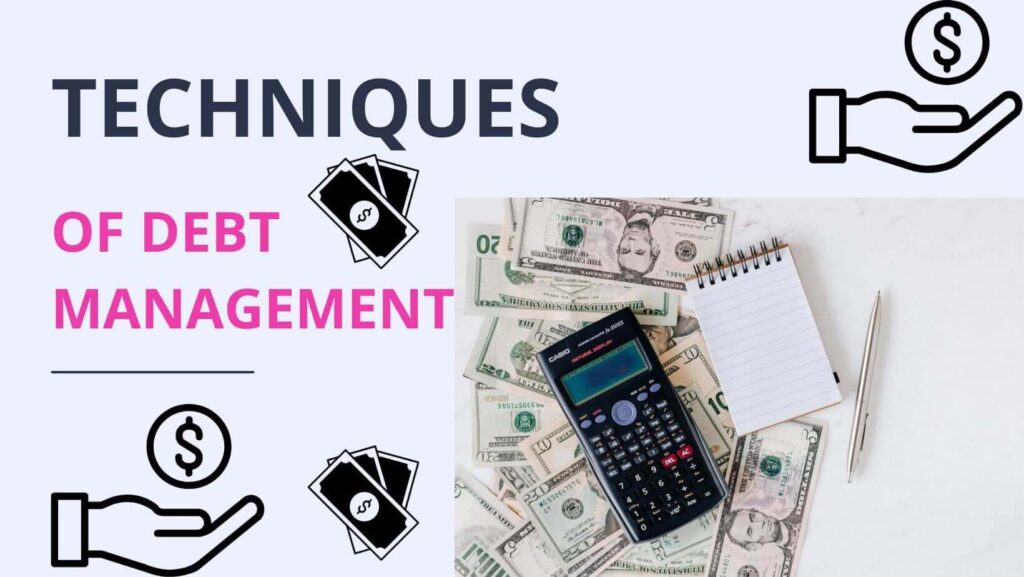Financial management is more important than ever in the fast-paced world of today. The debt management is one area of money management that needs focus. When debt is properly handled, it can be a helpful instrument for attaining a variety of objectives. But if unchecked, it can swiftly grow into a weight that interferes with future dreams and financial stability.
People need to comprehend and use debt management strategies in order to maneuver through this complex environment. In this post, we’ll examine several tried-and-true methods for helping you take charge of your bills and open the door to financial security.
Setting a Foundational Budget
The creation and adherence to a well-structured budget are the cornerstones of efficient debt management. A budget gives you a precise view of your earnings, outgoing costs, and debt commitments. It enables you to allocate money effectively, give debt repayments top priority, and make wise financial decisions. You can find areas where you can cut back on unnecessary costs and use those savings towards debt reduction with a budget in place.
The order of debts
Debts must be prioritized according to aspects like interest rates and terms because not all debts are created equal. As they can quickly mount and turn into a substantial financial burden, high-interest debts like credit card bills should normally be addressed immediately. You can free up money for other financial objectives by paying off high-interest obligations early, in addition to saving money on interest.
Consolidating debt
Debt consolidation entails consolidating many loans with high interest rates into one with a reduced interest rate. This method can result in lower monthly payments by streamlining the repayment procedure. Different methods of debt consolidation exist, including balance transfers, personal loans, and home equity loans. Before moving further, it’s crucial to carefully consider the conditions and costs related to consolidation possibilities.
Discussions with creditors
Contacting creditors might be helpful when facing difficult financial circumstances. Many lenders are prepared to cooperate with customers who are having financial difficulties by providing short-term assistance like reduced interest rates or longer repayment schedules. To explore potential agreements that can lessen your debt burden, it’s crucial to start these conversations early and keep the lines of communication open.
Avalanche vs. Snowball Method
The snowball and avalanche procedures are two well-liked approaches to debt payback. With the snowball approach, you concentrate on paying off the smaller obligations first, feeling motivated and accomplished as you pay off each individual loan. On the other hand, the avalanche strategy prioritizes debts with the highest interest rates in order to reduce total interest payments. Depending on your personality, financial condition, and goals, you should choose the best strategy.
Creating a fund for emergencies
Building an emergency fund is essential for avoiding the emergence of new debts, even though it is not explicitly a debt management strategy. Unexpected expenses, like medical costs or auto repairs, can throw off your debt payback schedule. You may pay for such expenses without using credit cards or loans by setting up an emergency fund.
Getting Professional Help
Seeking assistance from financial counsellors, credit counselling organizations, or debt management firms can be a wise decision if your debt situation feels overwhelming. These specialists are able to assess your financial status, create a personalized plan, and deal with creditors on your behalf. To avoid scams or unexpected costs, it is crucial to do your homework and pick trusted professionals.
Maintaining Order and Patience
It takes both patience and discipline to manage debt effectively. Although the process may take some time, the benefits of financial freedom and less stress make the effort worthwhile. Maintain your commitment to your spending plan, check in on your progress frequently, and recognize accomplishments as you go.
Achieving financial stability and securing a prosperous future require effective debt management. You may take back control of your financial situation by using strategies like budgeting, prioritizing bills, looking into consolidation alternatives, and getting help from a professional when necessary. Remember that each person’s journey is unique; therefore, it’s crucial to adapt these strategies to your own circumstances and objectives. You can create a path to a debt-free and financially secure existence with perseverance and a well-structured plan.


